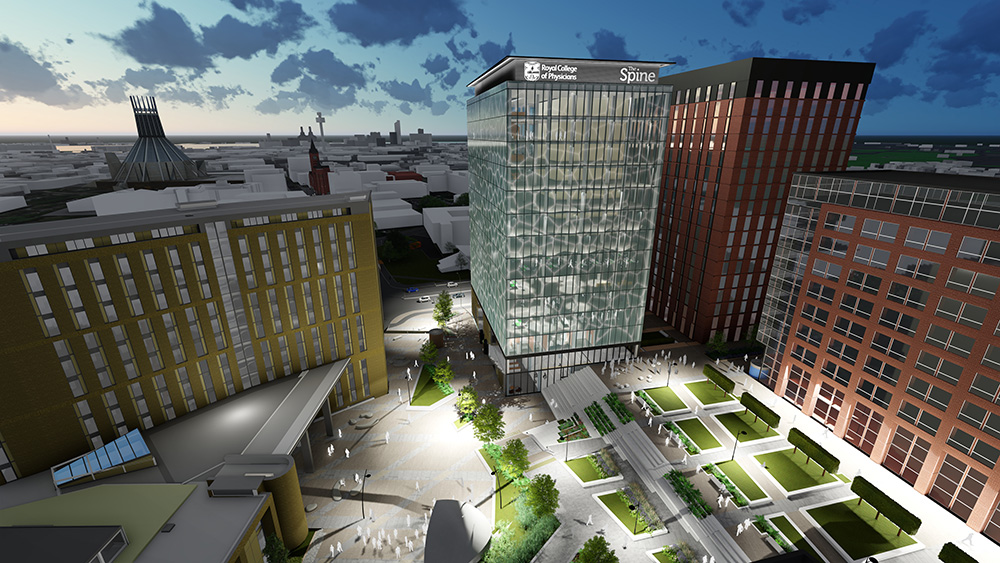Construction and Built Environment
Construction and the Built Environment is vital to delivering the infrastructure and buildings needed for the future inclusive growth of the Liverpool City Region.
The sector provides a large variety of job role opportunities and increased scope for progression.
Sustainable development and the emergence of new technologies and construction techniques will see different roles emerging and the need for current roles to adapt and change accordingly.
Construction has the highest take up of apprenticeships out of all sectors and has contributed over £25 billion GVA to the Liverpool City Region economy in the last 20 years.
Construction and
Built Environment
LCR Vacancies
Halton Vacancies
Knowsley Vacancies
Liverpool Vacancies
Sefton Vacancies
St. Helens Vacancies
Wirral Vacancies
*When clicking through to ‘Search Vacancies’ you will be taken to Find a Job. The number of vacancies available will be different to that displayed as these are taken from multiple sources.
Career Progression Pathways
Whether you are interested in an apprenticeship, traineeship or you already work within this sector, the following career progression pathway diagram provides a basic overview of some of the roles available at various levels.
The roles detailed within the diagram are just a few of those available and demonstrate how continued learning can help you progress through this particular sector whether you have just started your career journey or are looking to move on up.
Each role detailed, provides a brief overview, highlighting the responsibilities and duties involved, as well as average salary and what level of learning the role is associated with.
Job Level 2 – 4
Construction-Labourer
Level: 2
Salary From: £17,000
Average Salary: £24,500
Salary To: £32,000
Construction labourers work on practical tasks on construction sites from the start to the end of building projects.
Plasterer
Level: 2
Salary From: £19,000
Average Salary: £26,500
Salary To: £34,000
Plasterers apply plaster to walls and ceilings ready for decorating and finishing.
Bricklayer
Level: 3
Salary From: £17,000
Average Salary: £28,500
Salary To: £40,000
Bricklayers build houses, repair walls and chimneys and refurbish decorative stonework. They also work on restoration projects.
Carpenter
Level: 3
Salary From: £17,000
Average Salary: £27,500
Salary To: £38,000
Carpenters and joiners make and install wooden structures, fittings and furniture.
Construction-Plant-Operator
Level: 3
Salary From: £19,000
Average Salary: £27,500
Salary To: £36,000
Construction plant operators work with machinery and equipment used on building sites.
Cavity Insulation Installer
Level: 4
Salary From: £17,000
Average Salary: £28,500
Salary To: £40,000
Cavity insulation installers fit insulation, soundproofing materials and cladding in buildings.
Gas-Service-Technician
Level: 4
Salary From: £18,000
Average Salary: £28,000
Salary To: £38,000
Gas service technicians install, service and repair gas appliances and heating systems.
Job Level 5 – 7
Building-Control-Officer
Level: 5
Salary From: £22,000
Average Salary: £41,000
Salary To: £60,000
Building control officers make sure building regulations are followed.
Building-Site-Inspector
Level: 5
Salary From: £21,000
Average Salary: £35,500
Salary To: £50,000
Building site inspectors check the quality and safety of construction work.
Construction Contracts Manager
Level: 5
Salary From: £25,000
Average Salary: £42,500
Salary To: £60,000
Construction contracts managers look after building contracts and construction costs.
Architectural-Technologist
Level: 6
Salary From: £20,000
Average Salary: £40,000
Salary To: £60,000
Architectural technologists manage all stages of the technical design and planning process of building projects
Civil-Engineer
Level: 6
Salary From: £30,000
Average Salary: £50,000
Salary To: £70,000
Civil engineers design and manage construction projects, from bridges and buildings to transport links and sports stadiums.
Structural-Engineer
Level: 6
Salary From: £28,000
Average Salary: £39,000
Salary To: £50,000
Structural engineers help to design and build large structures and buildings, like hospitals, sports stadiums and bridges.
Architect
Level: 7
Salary From: £27,000
Average Salary: £58,500
Salary To: £90,000
Architects design new buildings and the spaces around them, and work on the restoration and conservation of existing buildings.
Building-Surveyor
Level: 7
Salary From: £25,000
Average Salary: £47,500
Salary To: £70,000
Building surveyors advise clients about the design, construction, maintenance and repair of buildings.
Town-Planner
Level: 7
Salary From: £18,000
Average Salary: £31,500
Salary To: £45,000
Town planners help shape the way towns and cities develop, and balance the demands on land with the needs of the community.
THERE ARE MANY ROLES WITHIN THE CONSTRUCTION AND BUILT ENVIRONMENT SECTOR.
TO SEARCH SPECIFIC JOB DESCRIPTIONS CLICK HERE


 Afrikaans
Afrikaans Arabic
Arabic Chinese (Simplified)
Chinese (Simplified) Dutch
Dutch English
English French
French German
German Greek
Greek Hebrew
Hebrew Italian
Italian Japanese
Japanese Korean
Korean Kurdish (Kurmanji)
Kurdish (Kurmanji) Latvian
Latvian Lithuanian
Lithuanian Persian
Persian Polish
Polish Portuguese
Portuguese Romanian
Romanian Russian
Russian Slovenian
Slovenian Spanish
Spanish Sundanese
Sundanese Ukrainian
Ukrainian Urdu
Urdu Welsh
Welsh